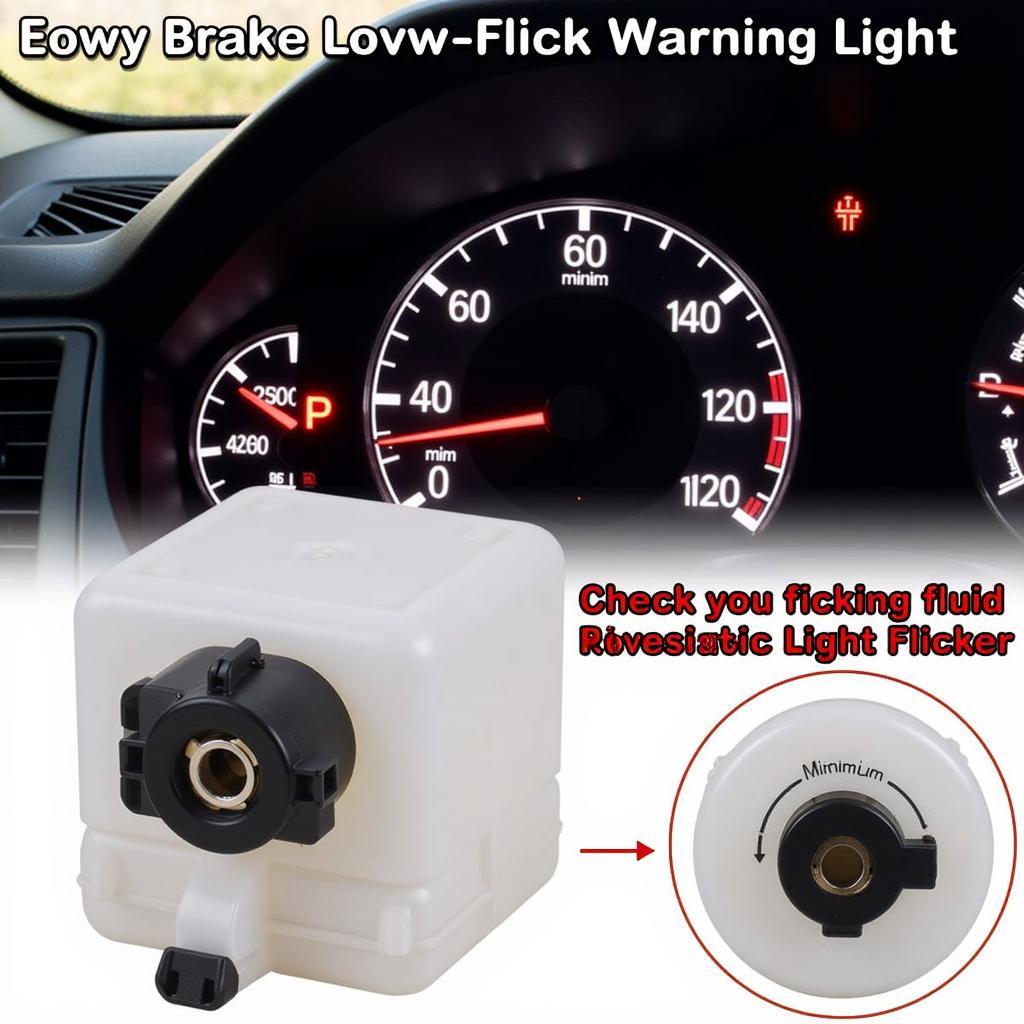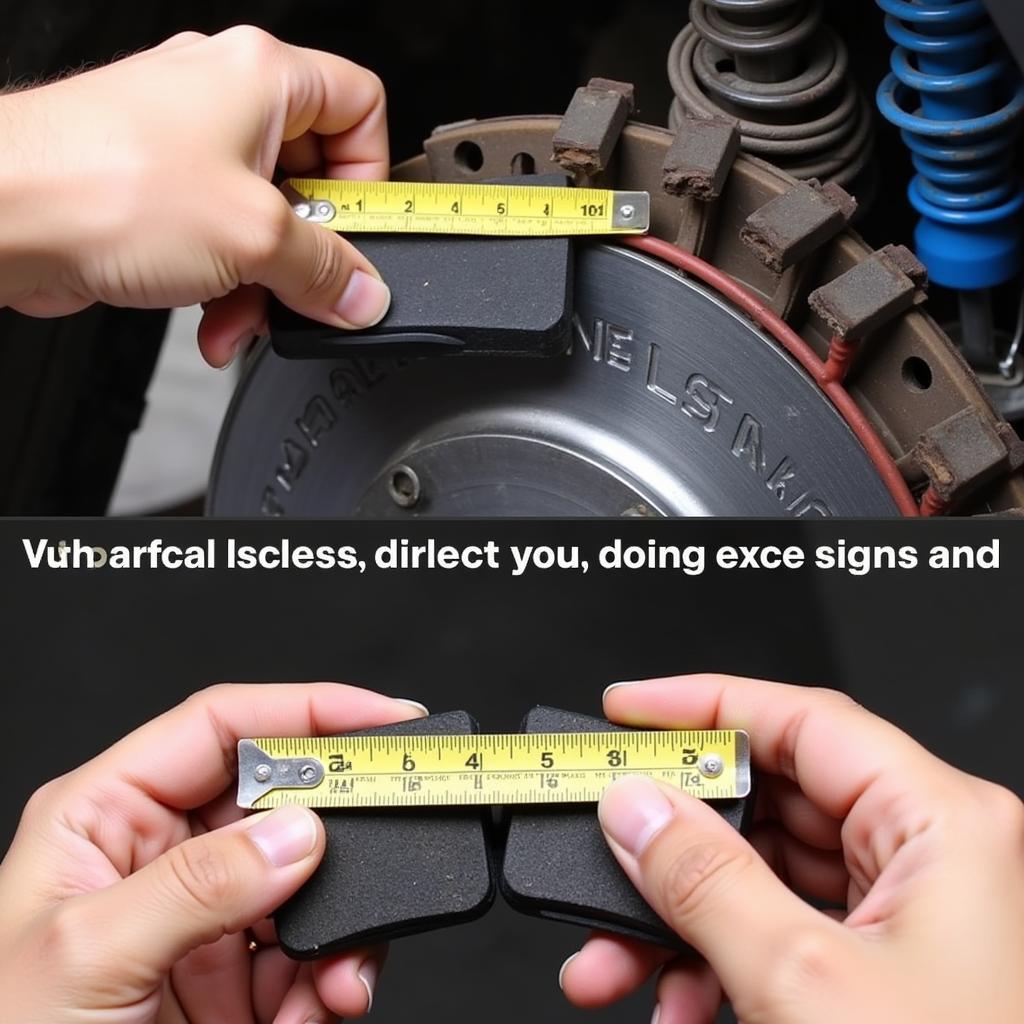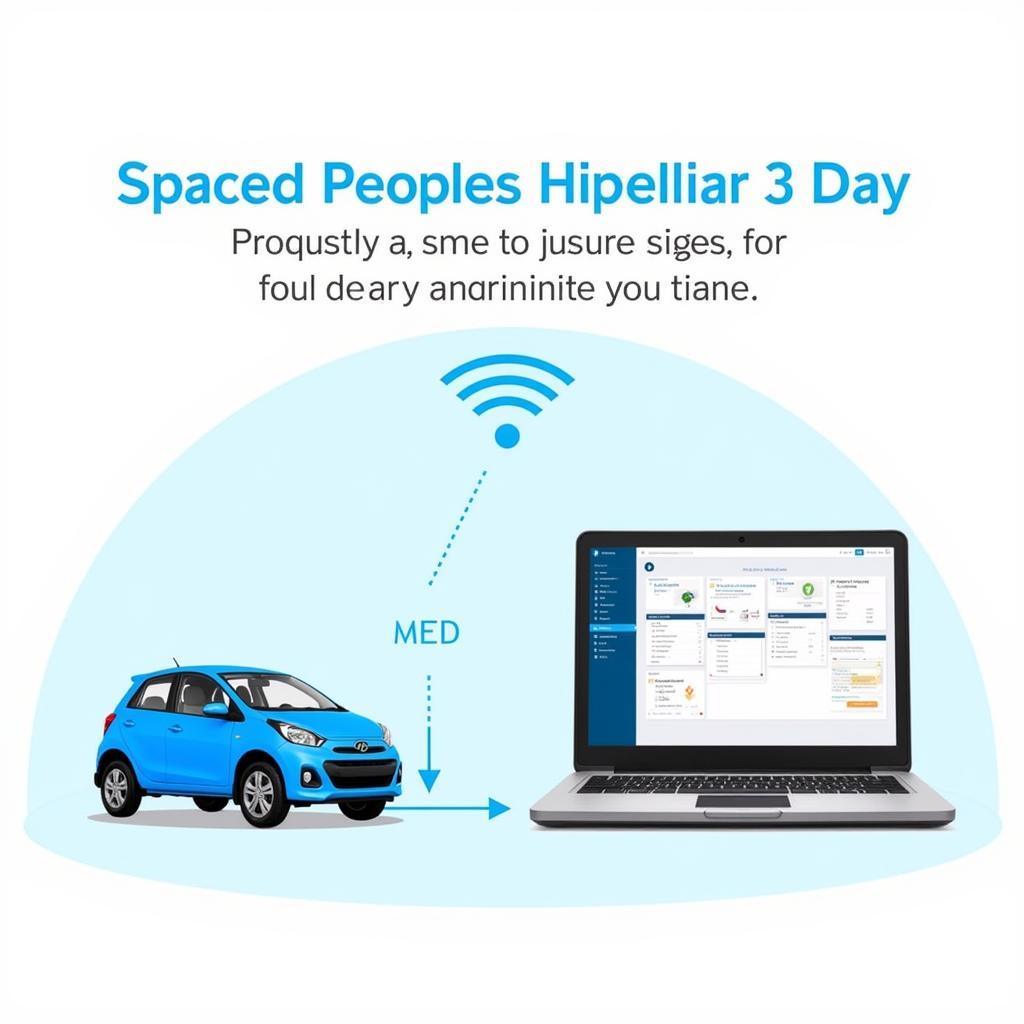A flickering brake warning light is a common issue that can indicate a range of problems, from minor inconveniences to serious safety concerns. Understanding why your brake warning light is flickering and knowing how to address it is crucial for maintaining your vehicle’s safety and performance. Addressing this issue promptly can prevent further damage and ensure a safe driving experience. Let’s explore the common causes and solutions for a flickering brake warning light.
The most common cause of a flickering brake warning light is low brake fluid. Your brake system relies on hydraulic pressure to function, and low brake fluid can disrupt this pressure, triggering the warning light. This could be due to a leak in the brake lines, worn brake pads, or simply needing a top-up. Check your brake fluid reservoir immediately. If the fluid is low, add more brake fluid that meets the specifications for your vehicle. However, simply adding fluid might not solve the underlying problem, so further investigation is often necessary. You can find more information on flickering brake warning lights at flickering brake warning light.
Common Causes of a Flickering Brake Warning Light
Several factors can contribute to a flickering brake warning light. Here are some of the most prevalent causes:
Low Brake Fluid
Low brake fluid is often the primary culprit behind a flickering brake warning light. As brake pads wear down, the brake fluid level naturally decreases. If the fluid level drops significantly, it can trigger the warning light. A leak in the brake system can also lead to low fluid levels.
Faulty Brake Light Switch
The brake light switch activates your brake lights when you press the brake pedal. A malfunctioning switch can cause erratic behavior, including a flickering brake warning light, along with other issues like brake lights staying on or not illuminating at all.
Worn Brake Pads
Worn brake pads reduce the pressure in the brake system, which can trigger the warning light. Thin brake pads require more brake fluid to engage, leading to a lower fluid level and the flickering warning light. Check your brake pads for wear and tear. If they are thin, replace them immediately. For more insights into specific vehicle issues, explore causes of flickering brake warning lights on a Ford E150 at causes of flickering brake warning light ford e150.
 Low Brake Fluid and Flickering Brake Light
Low Brake Fluid and Flickering Brake Light
ABS Issues
Problems with the Anti-lock Braking System (ABS) can also cause the brake warning light to flicker. A faulty ABS sensor or module can disrupt the system and trigger the warning light. This requires specialized diagnostic equipment to identify and rectify.
Loose or Damaged Wiring
Loose or damaged wiring within the brake system can interfere with the signal transmission, leading to a flickering warning light. This requires a thorough inspection of the wiring harness and connections.
Troubleshooting a Flickering Brake Warning Light
If your brake warning light is flickering, taking immediate action is crucial. Here are some steps to help you troubleshoot the problem:
- Check the Brake Fluid Level: Inspect the brake fluid reservoir. If the level is low, add brake fluid to the recommended level.
- Inspect Brake Pads: Check the thickness of your brake pads. If they are worn, replace them immediately.
- Check Brake Lights: Ensure all brake lights are functioning correctly. If not, it might indicate a problem with the brake light switch.
- Inspect Wiring: Visually inspect the wiring connections for any damage or looseness.
 Checking Brake Pads for Wear and Tear
Checking Brake Pads for Wear and Tear
Why is my parking brake light flickering?
Sometimes the issue isn’t with your main braking system, but with the parking brake. A flickering parking brake warning light often indicates that the parking brake is not fully disengaged. This could be due to a mechanical issue with the parking brake cable or a faulty sensor. You can find more information regarding parking brake warning lights at 2006 freightliner m2 parking brake warning light.
What about brake lining wear?
Another related issue that can indirectly contribute to a flickering brake warning light is worn brake lining, particularly in trucks. Monitoring brake lining wear is essential for heavy vehicles. brake lining wear truck warning provides valuable information on this topic.
Remote Diagnostics and Software Solutions
Modern vehicles often require specialized diagnostic software to pinpoint the exact cause of a flickering brake warning light. Remote diagnostics and software solutions allow technicians to access and analyze your vehicle’s data remotely, providing quick and efficient diagnoses. This is particularly useful for complex issues related to ABS or other electronic components. You can also read more about situations where your brake light warning light goes on and off at brake light warning light goes on and off.
“A flickering brake warning light should never be ignored,” says automotive expert, David Miller, ASE Certified Master Technician. “It’s a crucial signal that your vehicle needs attention, and delaying repairs can lead to more serious problems.”
Another expert, Sarah Chen, Electrical Systems Engineer, adds, “Modern brake systems are complex and rely on sophisticated electronics. Remote diagnostics allow us to quickly and accurately identify the root cause of the issue, minimizing downtime and ensuring the vehicle is safe to operate.”
In conclusion, a flickering brake warning light requires prompt attention. By understanding the potential causes and utilizing proper diagnostic methods, you can address the problem efficiently and ensure your vehicle’s safety and reliability. Don’t ignore this important warning – take action now to prevent further damage and ensure safe driving.
FAQ
-
What is the most common cause of a flickering brake warning light? Low brake fluid is often the primary culprit.
-
Can worn brake pads cause a flickering brake warning light? Yes, worn brake pads can reduce brake system pressure and trigger the light.
-
What should I do if my brake warning light is flickering? Check your brake fluid, brake pads, and brake lights. If the problem persists, seek professional help.
-
Can ABS problems cause the brake warning light to flicker? Yes, issues with the ABS system can trigger the warning light.
-
Why is my parking brake light flickering? It might indicate the parking brake isn’t fully disengaged or a sensor issue.
-
How can remote diagnostics help with a flickering brake warning light? Remote diagnostics can pinpoint the exact cause, especially for complex electronic issues.
-
Is it safe to drive with a flickering brake warning light? It’s best to avoid driving and seek immediate inspection to prevent potential safety hazards.

